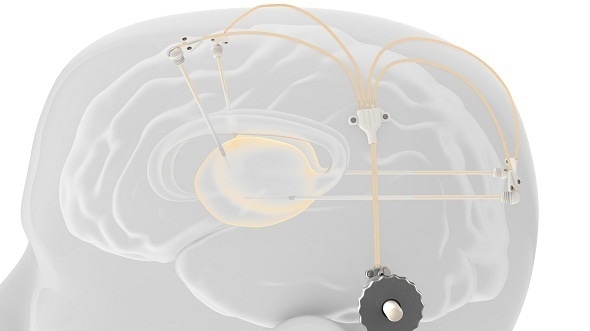Global engineering technologies company, Renishaw, announces that its award-winning intraparenchymal drug delivery device, has played a critical role in a joint Phase 1-2 clinical study with Herantis Pharma plc, for the investigation of cerebral dopamine neurotrophic factor (CDNF)as a treatment for Parkinson's disease.

The study’s repeated delivery regime, which allows for a prolonged therapeutic window, is crucial to achieve the potential neuroprotective and neurorestorative actions of CDNF, and has been made possible through the use of Renishaw’s ground-breaking drug delivery system.
Initial results indicate predictable and accurate placement of the device as well as its positive performance and safety. The Company will continue to assess the results as the data is analyzed and through the extension part of the study, as patients receive ongoing monthly infusions of CDNF using the Renishaw device.
Rupert Jones, Managing Director of Renishaw Medical, said:
The results of this trial and the performance of Renishaw’s drug delivery system are promising for the many people with Parkinson’s disease and I would like to take this opportunity to thank the trial participants for making this possible.
These results allow us to build towards CE marking of Renishaw’s device so that further neurodegenerative and neuro-oncological conditions can benefit from our technology. We see our device as an enabling technology that facilitates the reliable and repeated delivery of therapeutic agents direct to targets deep within the parenchyma, as part of a paradigm shift in the way treatments of neurological disorders and brain tumors are progressing.”
About the device
Renishaw’s intermittent drug delivery system comprises of up to four catheters, which can be implanted into target areas within the brain. The catheters are accessed via a 3D printed titanium transcutaneous port implanted behind the patient's ear. Drug-filled infusion lines are connected using an MRI compatible application set, which repeatably locates onto the port. Retractable needles extend through a septum in the port to enable therapeutics in the external infusion lines to be infused through the implanted catheters.
Thanks to this innovative, patented design, patients are able to receive infusions in an out-patient setting, rather than requiring the reimplantation of new catheters for each infusion, which has been the only option for many trials to date.
About the study
The study was a first-in-human, study whereby 17 patients were randomized to receive either one dose per month for six months, of a placebo, or six increasing doses of Herantis Pharma plc’s novel drug candidate, CDNF, over the same period in a blinded manner. After this six month period, patients may enter into an additional six-month study where all participants receive CDNF. In total, patients will receive 12 infusions, all delivered in an out-patient setting.
The primary endpoints evaluate the safety, performance/tolerability of both the drug delivery system and CDNF as well as surgical accuracy. Secondary to this, the potential efficacy of the drug, rated against the Unified Parkinson's Disease Rating Scale (UPDRS) motor score evaluation, was also monitored.
The clinical study has received funding from the European Union's research and innovation program Horizon 2020 under the grant agreement number 732386.